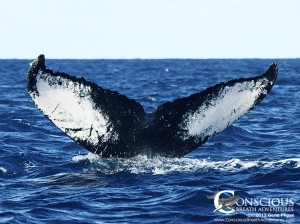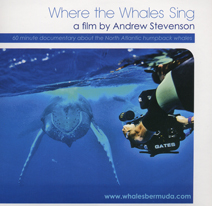- Welcome to Conscious Breath Adventures
8 Organizations Helping Humpback Whale Conservation on the Silver Bank
- Home
- Conservation
- 8 Organizations Making a Difference to the Whales of the Silver Bank
Like a Hollywood movie, working behind the scenes of one of the world’s greatest natural works of art – the annual gathering of humpback whales on the Silver Bank – there are literally hundreds of critical players on the credit list. From protecting their breeding grounds, to keeping the oceans healthy and safe for their continued survival, many individuals and organizations play key roles in the welfare of whales.
The following eight entities are appreciated for their contributions to the success of the Sanctuary and for other marine conservation-related efforts. It is by no means a comprehensive list and there is no ordination; simply recognition of what they do, a thanks to all, and a call for on-going support. Please visit their websites, learn more, and get involved.
1. Ministerio de Medio Ambiente y Recursos Naturales, Dominican Republic
This government ministry is charged with the critical responsibility of managing and protecting the Sanctuary for the Marine Mammals of the Dominican Republic, a model sanctuary for the world. Government’s ongoing management efforts, (which includes overseeing whale-watching activities) plus the sheer size of the marine-protected area help to ensure the sanctity of their breeding and nursing grounds. The D.R. has demonstrated long-standing support and commitment to whales and other natural resources of their Caribbean island country.
2. The Whaleman Foundation
Our own guide and naturalist, Jeff Pantukhoff, is a passionate voice for marine mammals through his non-profit Whaleman Foundation and its ongoing international “Save the Whales Again!” Campaign. The campaign’s mission is to end commercial whaling and dolphin hunting worldwide while raising awareness of other major threats to dolphins and whales including entanglement in fishing gear, chemical and ocean noise pollution, ship strikes, and climate change. His work includes environmental education through film and the media, direct action as well as focused policy efforts. Jeff is also trained in disentanglement procedures and has been directly involved in two disentanglement efforts on the Silver Bank.
3. Allied Whale
At the College of the Atlantic in Bar Harbor,  Maine, a dedicated group of academics and students have, since 1972, been carrying out research towards the effective conservation of marine mammal populations and their habitats. Their important work includes responding to marine mammal strandings and curating the largest collection of information on photo-identified humpback and finback whales in the world. The catalog is the “Who’s Who’”of North Atlantic whales and provides critical insights into their behavior and distribution. Conscious Breath Adventures is happy to contribute photo ID data to their catalog annually.
Maine, a dedicated group of academics and students have, since 1972, been carrying out research towards the effective conservation of marine mammal populations and their habitats. Their important work includes responding to marine mammal strandings and curating the largest collection of information on photo-identified humpback and finback whales in the world. The catalog is the “Who’s Who’”of North Atlantic whales and provides critical insights into their behavior and distribution. Conscious Breath Adventures is happy to contribute photo ID data to their catalog annually.
4. BlueVoice.org
For over 20 years, Hardy Jones of BlueVoice.org has worked extensively on cetacean issues ranging from pollution to captivity. Continuing research and raising awareness about the links between land-based activities and health issues in small cetaceans is shedding important light on our own immune health. Issues of particular relevance to whales on the Silver Bank are his ongoing efforts to hold Greenland’s feet to the fire with respect to whaling. At this year’s meeting of the IWC in Panama, Greenland asked for an increased annual quota for the “take” of humpback whales. It is possible that the same whales we swim with on the Silver Bank could end up as whale burger in a Greenland take-away and BlueVoice.org will be there to document this corruption of the quota.
5. Center for the Conservation of Samaná Bay and its Surroundings (CEBSE)
A non-profit organization in the Dominican Republic, CEBSE’s mission is the conservation of Samana Bay and surrounding areas. With a strong focus on sustainable development, community participation, and promoting inter-institution collaboration, they help to protect this important region for many species, including humpback whales. CEBSE provides visitors with information on sustainable tourism and ethical whale watching, and they’ve been a strong voice for the region and conservation in the Dominican Republic since 1991.
6. Provincetown Center for Coastal Studies
Located on the northern tip of Cape Cod, the Center is a leading research organization, which for 35 years has been increasing our knowledge of North Atlantic whales. They are the only organization on the east coast of the US authorized to disentangle large whales; more than 90 have been freed since 1984. The Center coordinates the Disentanglement Network, an unfortunately very much needed 911 service for whales.
7. Whales Bermuda
The long migration from summer feeding  grounds to breeding areas in the Caribbean entails a pit stop for many humpback whales in the waters surrounding the island of Bermuda. Here, Andrew Stevenson has devoted the past six years of his life to collecting visual and acoustic data to document their mid-migration behavior, making major contributions to the understanding of this poorly studied part of the humpback’s life-cycle. Andrew visits the Dominican Republic every year and his film Where the Whales Sing won acclaim at the 2011 Blue Ocean film festival.
grounds to breeding areas in the Caribbean entails a pit stop for many humpback whales in the waters surrounding the island of Bermuda. Here, Andrew Stevenson has devoted the past six years of his life to collecting visual and acoustic data to document their mid-migration behavior, making major contributions to the understanding of this poorly studied part of the humpback’s life-cycle. Andrew visits the Dominican Republic every year and his film Where the Whales Sing won acclaim at the 2011 Blue Ocean film festival.
8. National Oceanic and Atmospheric Administration (NOAA) and the National Marine Fisheries Service (NMFS), USA
The US government agency charged with protecting the oceans, NOAA plays a key role in the health and welfare of many marine species. Additionally, regulations in the Marine Mammal Protection Act are overseen and enforced by the National Marine Fisheries Service, an arm of the agency. Establishment and management of the Stellwagen Bank National Marine Sanctuary–summer feeding grounds for many Silver Bank whales and sister sanctuary to the Sanctuary for the Marine Mammals of the Dominican Republic–also falls under NOAA’s purview. Through funding and coordination with the Provincetown Center for Coastal Studies’ Disentanglement Network, NOAA plays a pivotal role in helping to aid tangled whales and reducing this threat to marine mammals.
From work on education to policy and enforcement, there are a multitude of puzzle pieces in play to help keep whale populations healthy and the seas safe. This list touches on some key government and conservation organizations with a specific focus on North Atlantic humpbacks, but it is far from complete. From Facebook groups, to whale-loving students, to international NGO’s, many are concerned and willing to act on that concern to ensure our kids and grandkids the opportunity to experience the great whales. We’ll be posting more in coming months, so please send us your suggestions. At the end of the day, it takes a village after all. And perhaps the most important person is you. Your choices and actions every day affect the health of our marine legacy in more ways than you know.